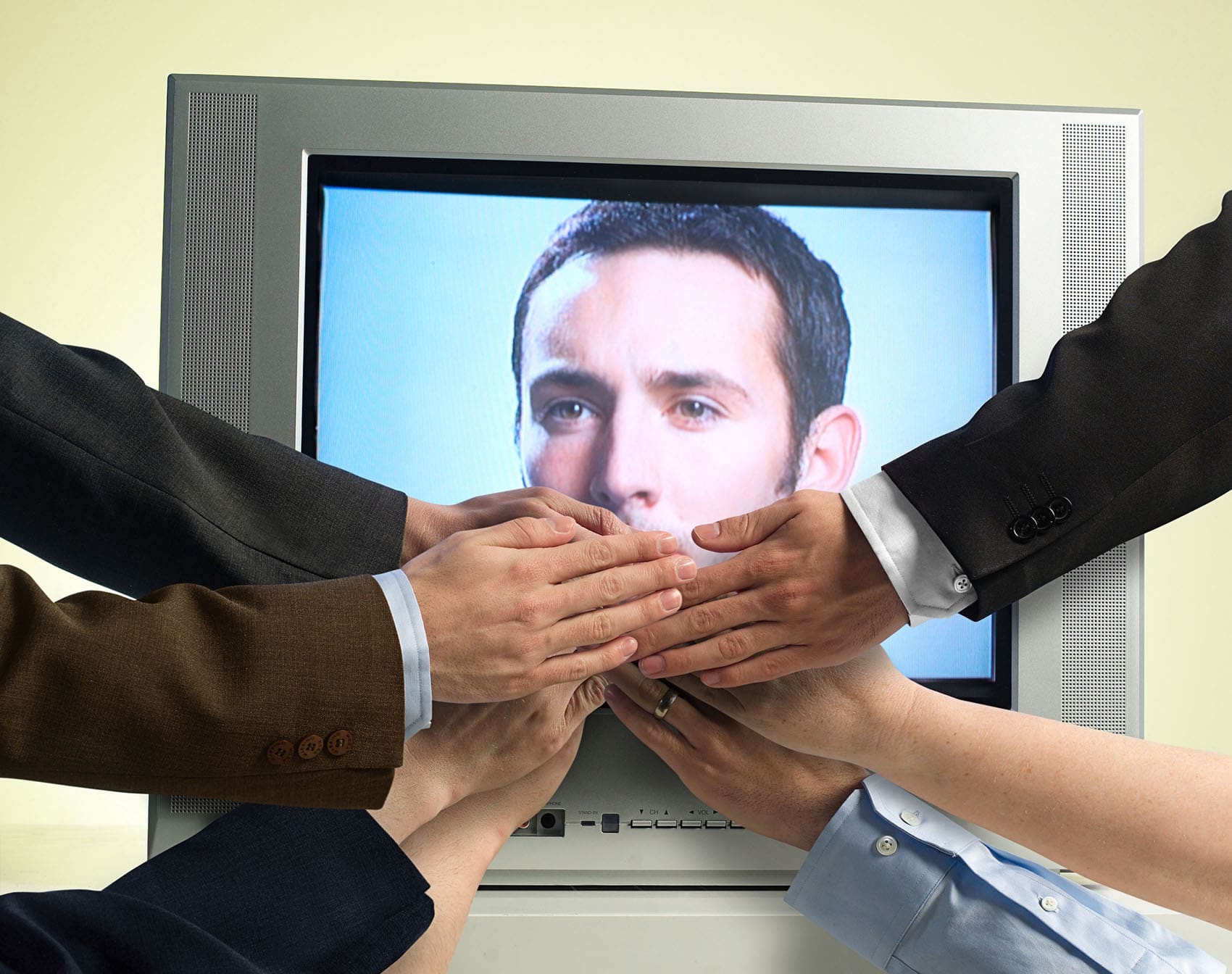
One of the biggest fears in America today is the fear of saying the wrong thing. Say something delicate or controversial that may not fit the mainstream narrative, and you open yourself up to social media mobs whose expertise is to take down, or “cancel,” anyone with whom they disagree. Most people I speak to, from the left or right, agree that this corrosive phenomenon has gone too far. Whether you’re a journalist, a professor, a commentator or simply a citizen expressing a view, examples of people being terrorized for saying the wrong things are endless, and they seem to be multiplying.
No wonder so many people prefer to self-censor and keep their “unpopular” views to themselves. Who wants to lose their jobs over a “wrong” comment? Who wants to be brazenly accused of being “racist” for saying the most innocuous thing?
The tragedy is that this bullying censorship is coming from the private sector, which means the constitutional protections of the First Amendment cannot come to our rescue. What a terrible irony: people are using free speech to destroy free speech.
Enter the holiday of Passover.
Why is Passover an ideal time to double and triple down on our most fundamental freedom of expression? Because the holiday commemorates the liberation of the ancient Jews from the most fundamental bondage of slavery. What good is freedom from slavery without freedom of expression? What good is freedom itself when you are terrified of saying the wrong thing?
But here’s the Jewish twist: Freedom of expression is liberated not by speakers but by listeners. The quintessential biblical call of “Hear O Israel” that lies at the heart of Jewish prayer is precisely that– an admonishment not to speak but to hear. The centuries of debates and arguments gathered in multiple volumes of Talmud are enabled by the ability of our sages to listen to other viewpoints, not simply their ability to offer their own.
There is a quirky tradition many people practice at the Passover Seder table: to lean to the side when drinking wine or eating matzah. Because slaves were so restricted in how they could eat, the leaning symbolizes our freedom to eat as we wish, even as kings would.
But this tradition of leaning to the side holds a deeper idea. It reminds us that to our left and our right are people with whom we disagree; people whose views we may even abhor. We will never liberate freedom of expression until we “lean in” to our left and our right and allow people to express themselves without fear of being cancelled.
I got a little test recently. I met someone who is refusing to take the COVID-19 vaccine because they believe it may have dangerous long-term side effects. I am a huge proponent of the vaccine. I consider it a miracle. I celebrated when my mother got her first shot in Montreal. It’s hard for me to accept or even understand how anyone wouldn’t run to take advantage of this miracle.
So, what did I do? I just listened. It was hard but I did it. Eventually, I expressed my own view, which was in sharp opposition. Both views were expressed; no one got verbally attacked or cancelled. Freedom of expression both ways, freedom from fear both ways.
What will happen if the person sitting next to you at your Seder table expresses a view radically different from yours? If bringing back a true spirit of free speech in our nation is important to you, you will do some radical listening. Radical listening is an expression of radical empathy– “I completely disagree with you but I will hear you out.”
If bringing back a true spirit of free speech in our nation is important to you, you will do some radical listening. Radical listening is an expression of radical empathy– “I completely disagree with you but I will hear you out.”
It is only through radical listening that we can resuscitate free speech in America and cancel the destructive phenomenon of cancel culture.
Free speech is not free. It’s expensive. It means tolerating speech that offends us and may even disgust us. Our founders concluded that this price was well worth it, if it meant liberating us from the fear of expressing “wrong” thoughts. They figured the best response to bad speech is good speech. It may make for a loud and argumentative society, but at the core of this society lies an enlightened human idea– an individual’s freedom to express themselves. Expensive yes, but also priceless.
The Torah goes deeper. It establishes boundaries of speech– for example, gossip and speaking badly of others are strongly frowned upon. But people are also given free will. It’s an individual’s ethical choice to guard one’s tongue. It’s not done under fear that a Twitter mob will take you down. It’s part of a personal, spiritual journey.
The current environment suffocates this personal choice. It bullies and coerces people into fitting the party line. It elevates purism over pluralism. The antidote to this disease is to elevate and mainstream the art of radical listening.
The current environment suffocates this personal choice. It bullies and coerces people into fitting the party line. It elevates purism over pluralism.
There’s no better time than Passover to kick this off. Over the next few weeks and months, the Jewish Journal will begin to publish and curate in a special section a broad array of content on the very subject of freedom of expression, including radical listening. We will explore the subject from as many angles as possible— including when limits are applicable– and will invite readers to share their thoughts.
In this holiday of liberation, we can’t think of a better thing to liberate than the human freedom to express ourselves, without fear or favor.
Happy Passover.
 RSS Feed
RSS Feed















 March 22nd, 2021
March 22nd, 2021  Awake Goy
Awake Goy  Posted in
Posted in  Tags:
Tags: 













